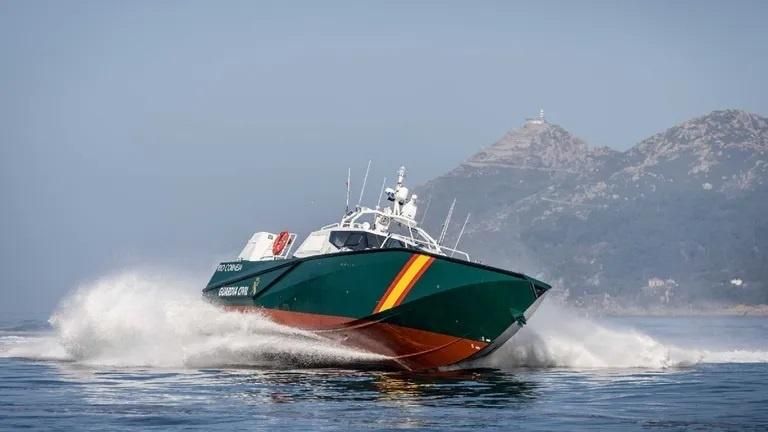The Aister promise: seven deliveries and fifteen ship orders in progress this summer

The shipyard from Moaña, dedicated to aluminium, places its turnover at 10.35 million
2022 was a turning point and the prospects for the coming years are very optimistic. Aister has overcome the worst crisis the shipyard went through between 2011 and 2014, dragged down by Hijos de J. Barreras bankruptcy, its main client. After embarking on a policy of change and strategy, focused on aluminium construction, Moaña’s factory goes back on course, places its turnover above 10 million euros and increases its turnover by 53% compared to the year former.
Aislamientos Términos de Galicia (Aister) has redirected its activity as its own shipyard and has reduced its independence from the large Galician shipbuilders. The strategy seems to work and this summer at Moaña’s slipways they will deliver seven boats and have fifteen underway. The most recent commission completed is the second patrol boat of the Civil Guard, Río Corneja. It is the fastest interceptor in the Strait of Gibraltar to hunt down drug trafficking. It is the twin of the one that was completed last March, Río Flumen, but in this second one "we have slightly reduced its weight," says Javier Rasilla, Director of the shipyard.
He does not hide the emotion to have been selected for its manufacture caused on them. They are made of aluminium, a specialty of the factory from Moaña, and exceed 55 knots. The shipyard is awarded a second contract to build three more interceptors for the security forces and worth 7.2 million euros.
Javier Rasilla maintains this year the fruits of the innovation and specialization plan that they drew up a decade ago are being reaped, but he is aware that there is still a long way to go. The negative result has been reduced to 325,000 euros, but it is still a pending burden.
Deliveries
The staff of 70 workers also hastens the delivery of four fishing inspection patrol boats for the Andalusian Agricultural and Fisheries Management Agency. It will be this summer. Built in naval aluminium, they have a top speed of more than 40 knots and their design is in the shape of a deep V, which gives them optimal hydrodynamics for their task, explains from Meira.
Hybrids
In a matter of days Aister will send three hybrid navigation vessels to the Balearic Islands to collect waste in port waters of the archipelago. The Moaña company plans to deliver the order at the beginning of 2023, between January and March. In the bow, they have two folding doors that open and close to capture marine debris.
And it is that the construction of electric boats and more respectful with the environment is another line of business drawn up by the Moañés shipyard to position itself in the naval market of the future, led by the energy transition. "They are important initiatives related to innovation and R&D," explained the director of Aister in an interview with this newspaper this year. In this sense, they have built in collaboration with Navantia Sistems the first vessel with autonomous navigation capacity in Spain for the Ceuta Port Authority. It is the USV type boat known as Vendaval.
The company has sold the marina assembly business line. In June 2022, Aislamientos Térmicos de Galicia (Aister) decided to sell the marina business line. This unit was made up of material elements, personnel, goodwill, and active contracts on the date of purchase. The management of the shipyard specifies that throughout this 2023 they carry out the last pending orders in pontoons. They close a historic stage with the shipyard and through which they were able to put their stamp on different geographical locations of the peninsular territory, such as the Azores islands. They handed over this business area to Almarín.
But it was not the only decision that Aister made last year since they opted to "definitely" paralyze the shipbuilding qualification activity as an auxiliary company. The commitment is part of the shipyard's plan to "redirect its strategy and reduce dependence on the workload" provided by the largest builders in Galicia.
(Source: La Voz de Galicia)

